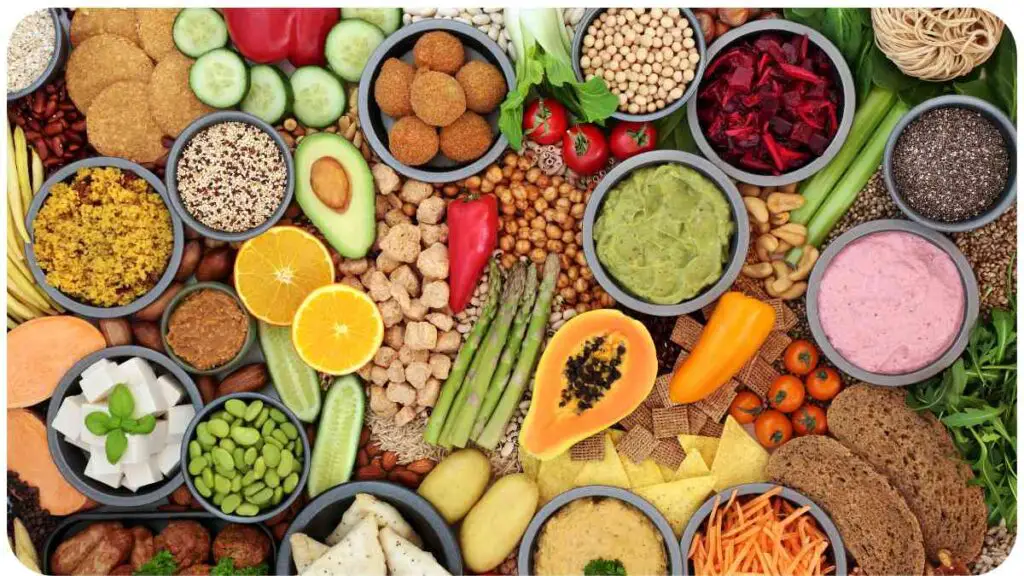Raising vegan children in a predominantly non-vegan world comes with its unique set of challenges. From social situations to nutritional concerns, parents may find themselves navigating uncharted territories. However, with the right approach and support, it’s entirely feasible to raise healthy, happy vegan kids. In this article, we’ll explore five essential tips to help parents navigate this journey with confidence.
| Takeaways |
|---|
| 1. Educate and empower your child about veganism. |
| 2. Lead by example by incorporating plant-based meals into family dinners. |
| 3. Communicate with teachers and caregivers to ensure your child’s dietary needs are met. |
| 4. Get creative with vegan meals to make mealtime fun and exciting. |
| 5. Foster critical thinking and compassion in your child towards animals and the planet. |
Understanding Veganism for Kids

Before delving into the tips, it’s crucial to understand what veganism entails for children. Veganism is not just about dietary choices; it’s a lifestyle that extends to all aspects of life, including clothing and personal care products.
For children, a well-planned vegan diet can provide all the necessary nutrients for growth and development. However, parents must ensure they have a good understanding of vegan nutrition and be proactive in addressing any potential gaps.
Introducing children to veganism is crucial for building empathy and awareness. Through everyday activities like cooking together or visiting animal sanctuaries, parents can instill 15 Simple Ways to Teach Your Kids About Veganism and Animal Rights values of compassion and respect for all living beings.
Tip 1: Educate and Empower Your Child
One of the most effective ways to support your child on their vegan journey is through education and empowerment. Teach them about the benefits of a plant-based diet and the importance of compassion towards animals. Involve them in meal planning and grocery shopping, allowing them to make informed choices about their food.
Navigating the challenges of raising a vegan family requires knowledge and support. Learn practical strategies and find encouragement in How to Deal With the Challenges of Raising a Vegan Family, empowering you to overcome obstacles and thrive on your compassionate journey.
Table: Plant-Based Protein Sources
| Protein Source | Protein Content (per 100g) |
|---|---|
| Lentils | 9g |
| Chickpeas | 8.9g |
| Tofu | 8g |
| Quinoa | 4.4g |
| Edamame | 11g |
By familiarizing your child with various plant-based protein sources, you empower them to make nutritious food choices and dispel any misconceptions about vegan diets lacking protein.
Tip 2: Lead by Example
Children often learn by example, so it’s essential for parents to lead by example when it comes to veganism. Incorporate plant-based meals into family dinners and showcase the delicious and diverse options available.
Table: Vegan Substitutions for Common Ingredients
| Common Ingredient | Vegan Substitution |
|---|---|
| Milk | Soy milk, almond milk, oat milk |
| Butter | Coconut oil, vegan margarine |
| Eggs | Flaxseed meal, mashed banana |
| Cheese | Nutritional yeast, vegan cheese |
Demonstrate to your child that being vegan is not about restriction but about exploring new flavors and cuisines.
Vegan parenting goes beyond dietary choices; it encompasses nurturing compassionate values. The Ultimate Guide to Vegan Parenting: How to Raise Compassionate Kids offers invaluable insights into fostering empathy, environmental stewardship, and healthy living in children, ensuring a brighter future for all.
Tip 3: Communicate with Teachers and Caregivers

When your child is in school or under the care of others, it’s crucial to communicate your family’s dietary choices with teachers and caregivers. Work together to ensure that your child has access to nutritious vegan options during school meals and snacks.
Table: Vegan-Friendly Lunch Ideas for School
| Meal Option | Ingredients |
|---|---|
| Hummus Wrap | Whole wheat tortilla, hummus, vegetables |
| Quinoa Salad | Quinoa, mixed vegetables, vinaigrette |
| Lentil Soup | Lentils, carrots, celery, vegetable broth |
| Veggie Sushi | Sushi rice, nori seaweed, cucumber, avocado |
By providing teachers and caregivers with simple and delicious meal ideas, you make it easier for them to accommodate your child’s dietary needs.
Raising kids on a vegan diet not only benefits their health but also instills lifelong values. Discover the 10 Surprising Benefits of Raising Your Kids on a Vegan Diet and empower yourself to make informed choices that promote well-being and compassion within your family.
Tip 4: Get Creative with Meals
Make mealtime fun and exciting by getting creative with vegan recipes. Experiment with different ingredients and cuisines to keep your child engaged and excited about their food.
Table: Weekly Vegan Meal Plan for Kids
| Day | Breakfast | Lunch | Dinner |
|---|---|---|---|
| Monday | Smoothie Bowl | Hummus Wrap | Vegan Mac and Cheese |
| Tuesday | Overnight Oats | Quinoa Salad | Lentil Curry |
| Wednesday | Avocado Toast | Veggie Sushi | Stuffed Bell Peppers |
| Thursday | Pancakes | Lentil Soup | Tofu Stir-Fry |
| Friday | Banana Pancakes | Chickpea Salad | Veggie Burger |
By planning a variety of delicious meals throughout the week, you ensure that your child receives all the essential nutrients they need to thrive.
Vegan parenting isn’t just about personal health; it’s about creating a healthier world for all. Explore Why Vegan Parenting Is the Best Choice for Your Family’s Health to understand how embracing a plant-based lifestyle benefits not only your family but also the planet.
Tip 5: Encourage Critical Thinking and Compassion
Lastly, encourage your child to think critically about their food choices and the impact they have on the planet and animals. Foster a sense of compassion and empathy towards all living beings, emphasizing the importance of kindness and respect.
Conclusion
Raising vegan kids in a non-vegan world may have its challenges, but with the right approach, it’s entirely possible to raise healthy, compassionate children who thrive on a plant-based diet. By educating, empowering, and leading by example, parents can instill lifelong values of compassion, health, and sustainability in their children. So, embrace the journey, get creative in the kitchen, and watch your child flourish as they navigate the world as proud vegan advocates.
Further Reading
- Raising Vegan Kids in a Non-Vegan World: This comprehensive guide offers practical tips and insights for parents navigating the challenges of raising vegan children in a predominantly non-vegan society.
- Raising Vegan Children: This article provides valuable information on the nutritional aspects of raising vegan children, addressing common concerns and misconceptions.
- 6 Ways to Raise a Vegan Child in a Non-Vegan World: VegNews presents six practical strategies for parents raising vegan children, including tips for navigating social situations and ensuring balanced nutrition.
FAQs
How do I ensure my vegan child gets enough protein?
A well-planned vegan diet can easily provide all the necessary protein for children. Foods like lentils, tofu, chickpeas, quinoa, and edamame are excellent sources of plant-based protein.
Are there any specific nutrients I should pay attention to when raising a vegan child?
While a vegan diet can be nutritionally adequate, parents should ensure their child receives adequate amounts of vitamin B12, vitamin D, iron, calcium, and omega-3 fatty acids. These nutrients can be obtained through fortified foods and supplements if necessary.
How can I handle social situations where my child may feel left out because of their vegan diet?
Open communication with teachers, caregivers, and other parents can help ensure that your child feels included in social gatherings. Providing vegan-friendly alternatives for parties and playdates can also help alleviate any feelings of exclusion.
Is it safe for children to follow a vegan diet?
Yes, a well-planned vegan diet can meet all of a child’s nutritional needs and support healthy growth and development. However, it’s essential to consult with a healthcare professional or registered dietitian to ensure your child’s diet is balanced and nutritionally adequate.
How can I encourage my child to embrace veganism without forcing it upon them?
Lead by example and involve your child in meal planning and cooking. Encourage them to explore new foods and flavors and educate them about the ethical and environmental reasons for choosing a vegan lifestyle. Ultimately, let your child make their own decisions and support them in their journey towards compassion and sustainability.

Hi! My name is Hellen James, and I’m a vegan lifestyle enthusiast. I’ve been living the vegan lifestyle for over 10 years now, and it’s been one of the best decisions I’ve ever made. The food is amazing, the community is incredible, and there’s no way I could go back after experiencing all this firsthand.


